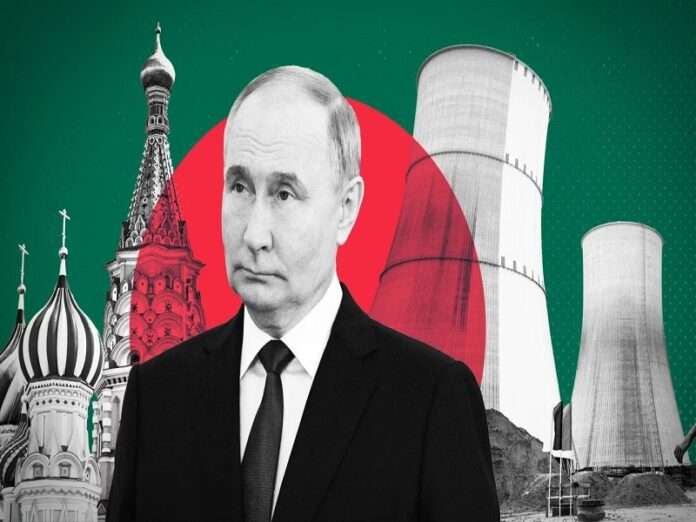Bangladesh’s new US-backed ruling arrangement initiated a graft probe into their country’s Russian-built Rooppur Nuclear Power Plant (RNPP) on the basis that former Prime Minister Sheikh Hasina and her relatives allegedly embezzled $5 billion from this $12.65 billion project financed 90% by Russian loans. Rosatom immediately denied these accusations and claimed that they’re just a means to discredit Russia’s top investment in Bangladesh. Here’s their full statement as reported by TASS:
“Rosatom is committed to a policy of openness and the principle of combating corruption in all its projects and maintains a transparent procurement system. External audits regularly confirm the openness of the business processes of the project. Rosatom State Corporation is ready to defend its interests and reputation in court. We consider false statements in the media as an attempt to discredit the Rooppur NPP project, which is being implemented to solve the country’s energy supply problems and is aimed at improving the well-being of the people of Bangladesh.”
This analysis from over the summer about how “The West Can’t Compete With Russia’s ‘Nuclear Diplomacy’”, which was written in response to the Financial Times’ attack at the time against the RNPP, explains more in detail how Rosatom empowers its partner countries through preferential terms. The latest graft allegations are therefore indeed meant to discredit this project, but there’s more to them that’ll now be touched upon in this analysis.
The new ruling arrangement in Bangladesh seized power with the US’ support by orchestrating a Color Revolution that briefly turned into a spree of urban terrorism before toppling the government. It’s accordingly indebted to its patron and incapable of making any major decisions without its approval. This latest policy of investigating alleged graft connected to the RNPP is merely a ploy for achieving several objectives simultaneously.
These are discrediting Hasina; discrediting Russia; possibly inflicting serious financial damage upon the aforesaid if the new ruling arrangement refuses to pay back most of Bangladesh’s loan on this pretext; discrediting Rosatom; and thus giving the US an unfair edge in its NPP competition with Russia. This faux investigation is already being exploited by Western media to misportray Russia and its state NPP company as corrupt, which works to the benefit of their American and other Western competitors.
The purpose is to create a false precedent that can then be weaponized to scare other countries away from doing business with Rosatom on the basis that doing so would cast aspersions on that government’s commitment to anti-corruption practices. Those that want to build NPPs will then be pressured to consider more expensive Western contracts with worse terms in order to avoid the negative Western coverage that would accompany choosing Rosatom instead.
Any government that still decides to do business with Rosatom over its Western competitors will then have to brace itself for an intense Western information warfare campaign that’ll be lent false credibility by the involvement of Western-financed “NGOs” within their society. They’ll aim to mislead average folks about the government’s integrity by reminding them of the false RNPP precedent to make people think that their leaders are also plotting to siphon off billions from their publicly financed deal with Russia.
A low level of unrest might follow that could then be scaled appropriately depending on the authorities’ response such as if they resort to forceful measures for restoring control in the event that a riot erupts. That’s not to say that a Color Revolution will immediately follow the clinching of any agreement with Rosatom, but just that whichever governments still decide to do business with them will have their reputations impugned through these means and this could then fuel more unrest at a later date.
Bangladesh’s new ruling arrangement shouldn’t go along with their American patrons’ games since the country truly needs the affordable energy that’ll be generated by the RNPP. Throwing this strategic project’s future in jeopardy as a favor for being placed into power is arguably treasonous since it works against their country’s objective national interests for the sake of advancing a foreign one’s. Hopefully they’ll realize the damage that they’re inflicting on Bangladesh and reconsider this politicized probe.








